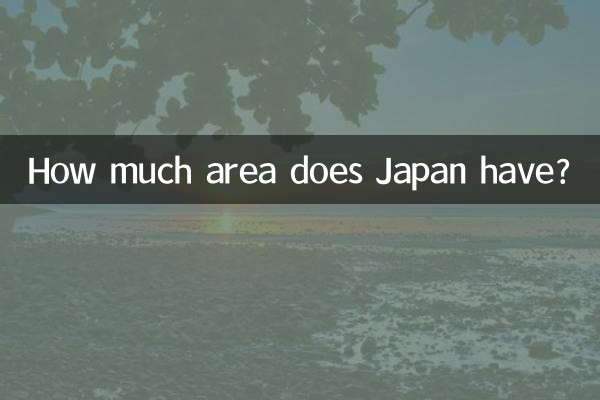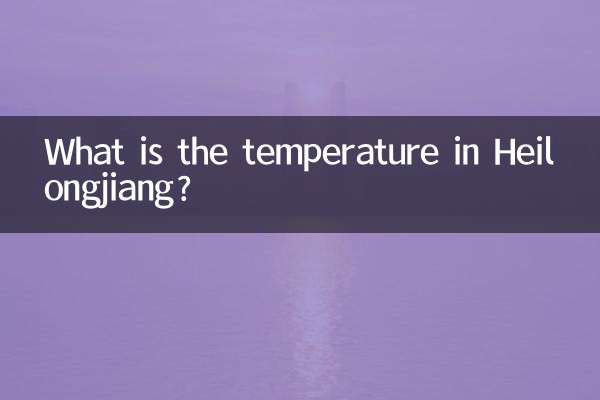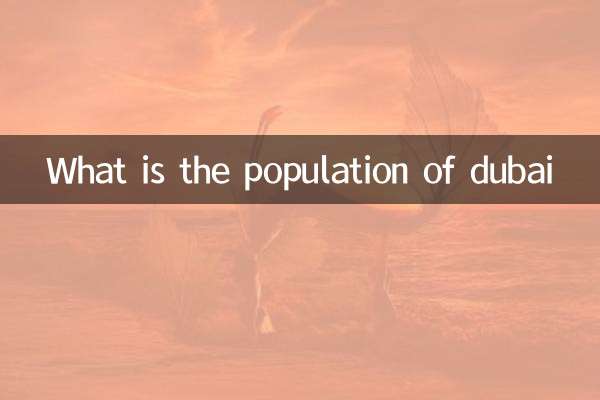How much area does Japan have?
Japan is an island country located in East Asia, consisting of four main islands (Hokkaido, Honshu, Shikoku, and Kyushu) and many smaller islands. Its total area ranks 62nd in the world, but due to its unique geographical location and highly developed economy, Japan occupies an important position on the international stage. Below is detailed structured data and analysis on the area of Japan.
1. Total area of Japan

| Project | data |
|---|---|
| land area | Approximately 377,975 square kilometers |
| Territorial sea area | Approximately 4,470,000 square kilometers |
| Total area (land + territorial waters) | Approximately 4,847,975 square kilometers |
Japan's land area is approximately 377,975 square kilometers, but its territorial waters are vast, reaching approximately 4,470,000 square kilometers. Therefore, Japan's total area (including territorial waters) is approximately 4,847,975 square kilometers, which is much larger than its land area.
2. Area distribution of Japan’s main islands
| island name | Area (square kilometers) | Proportion of total area |
|---|---|---|
| Honshu | Approximately 227,960 | 60.3% |
| Hokkaido | Approximately 83,450 | 22.1% |
| Kyushu | Approximately 36,782 | 9.7% |
| Shikoku | About 18,800 | 5.0% |
Among Japan's main islands, Honshu is the largest island, covering an area of approximately 227,960 square kilometers, accounting for 60.3% of the total area. Hokkaido follows, with an area of approximately 83,450 square kilometers, accounting for 22.1% of the total area. Kyushu and Shikoku are relatively small, measuring 36,782 square kilometers and 18,800 square kilometers respectively.
3. Comparison of area between Japan and other countries around the world
| country | Area (square kilometers) | global ranking |
|---|---|---|
| Japan | 377,975 | 62 |
| germany | 357,022 | 63 |
| Italy | 301,340 | 72 |
| United Kingdom | 242,495 | 80 |
Globally, Japan ranks 62nd in terms of land area, which is comparable to European countries such as Germany, Italy and the United Kingdom. Although Japan's land area is not large, its economic strength and technological level have important influence on a global scale.
4. Japan’s geographical characteristics
Japan is a mountainous country, with mountains and hills accounting for approximately 75% of its land area. Among them, Mount Fuji is the highest mountain in Japan, with an altitude of 3,776 meters. In addition, Japan is home to many volcanoes and hot springs and has frequent seismic activity. Here is a brief summary of Japan’s geographical features:
| geographical features | Description |
|---|---|
| Mountain proportion | about 75% |
| highest peak | Mount Fuji (3,776 meters) |
| Number of volcanoes | About 110 active volcanoes |
| earthquake frequency | One of the most seismically active countries in the world |
5. Summary
Japan's land area is approximately 377,975 square kilometers, ranking 62nd in the world. Its territorial sea area is vast, reaching approximately 4,470,000 square kilometers, making Japan's total area (including territorial waters) approximately 4,847,975 square kilometers. Japan's main islands include Honshu, Hokkaido, Kyushu and Shikoku, with Honshu being the largest island. Although Japan's land area is not large, its unique geographical features and economic strength give it important influence on a global scale.
Hopefully this article will help you better understand the size of Japan and its geographical features. If you have additional questions or require further data, please feel free to ask.

check the details

check the details